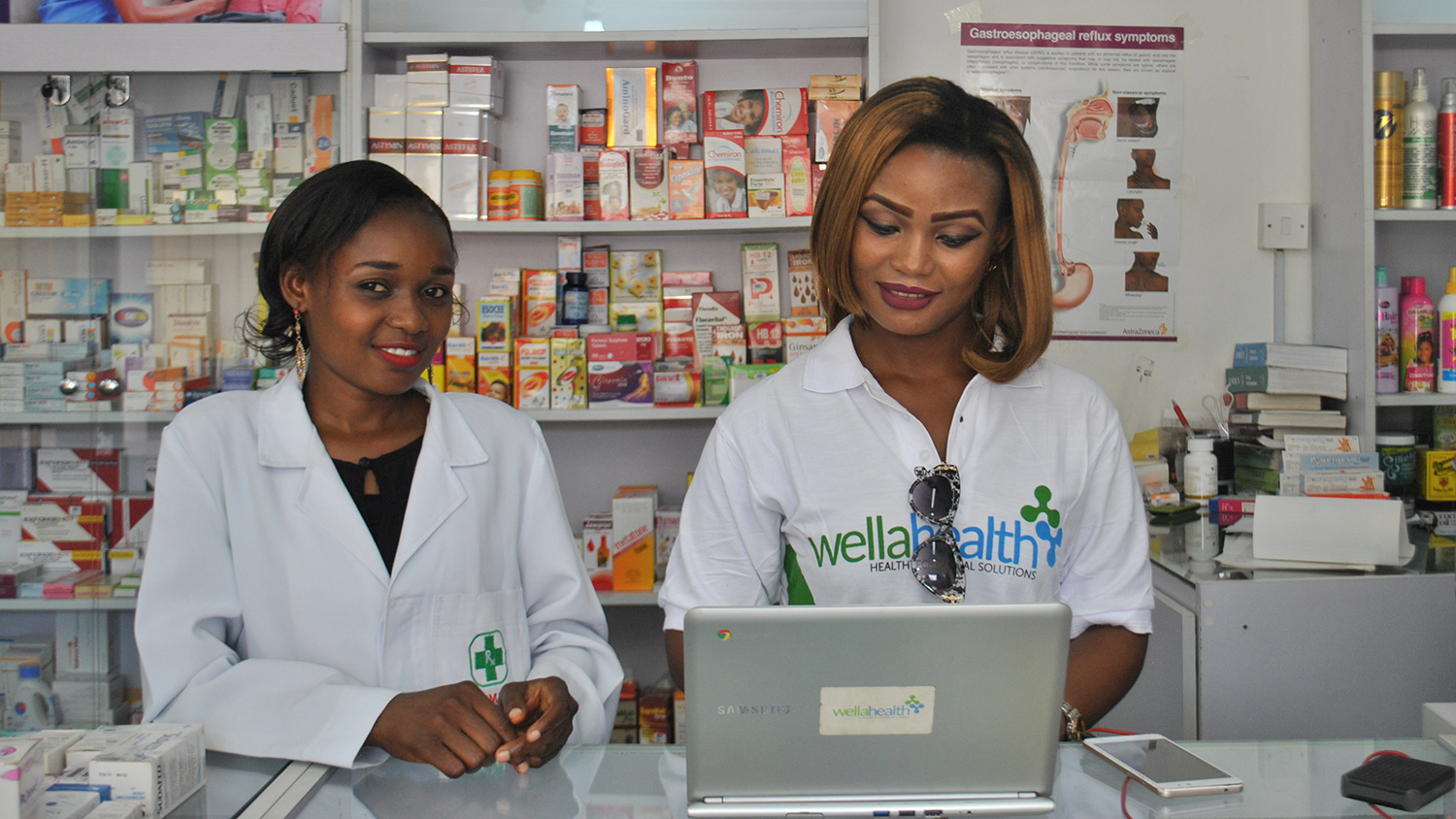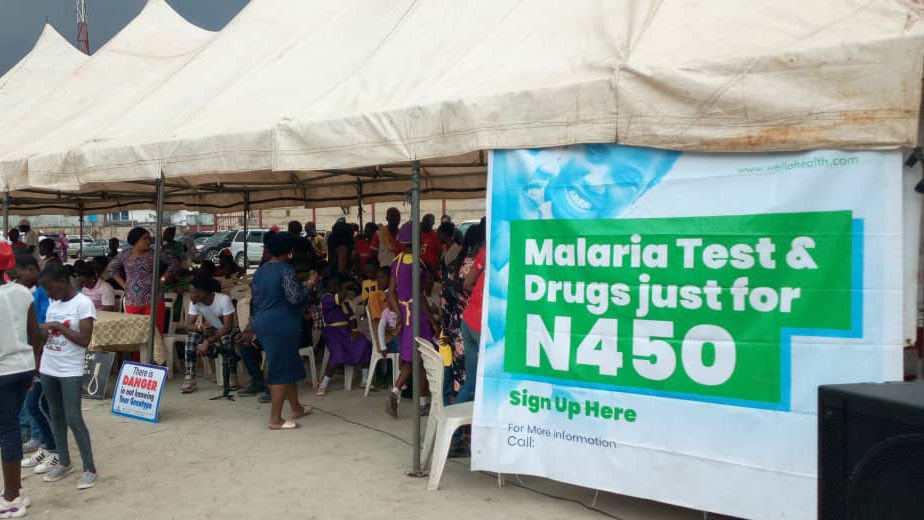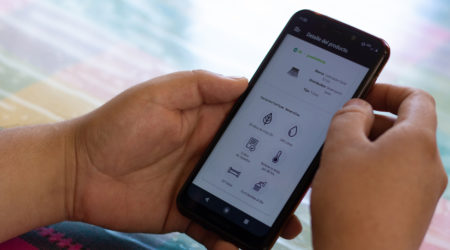Meet WellaHealth, bringing tailored micro-insurance products to Nigerians

Nigeria accounts for 25% of malaria cases worldwide and 19% of all deaths. Although malaria is eminently curable, most Nigerians lack healthcare coverage, so they delay or avoid treatment, resulting in over 300,000 deaths per year (compared to 215,000 deaths per year due to HIV/AIDS). In this environment, WellaHealth has developed malaria and hospitalization insurance plans that suit low-income Nigerians, who are the most vulnerable to malaria. The plans cost less than $2.00 per month, and include access to vetted healthcare providers and digital loan providers.
Impact
Although health insurance schemes and public health programs exist in Nigeria, they reach only a small percentage of the population. For example, the national health insurance scheme excludes informal workers and therefore covers less than 5% of the population. Another study found that only 12% of survey respondents were registered in the National Health Insurance Scheme. Furthermore, although mothers and children are entitled to free healthcare services, 97.9% of women are not covered by health insurance. Given gaps in coverage, one study found that 65% of all health expenditures are borne by households, whereas another found that only 3% of healthcare costs were paid for via insurance.
These gaps in coverage are particularly damaging in the case of malaria because delays in seeking treatment can be fatal. If not treated within 24 hours, malaria can progress to a severe illness or death, particularly in the case of cerebral malaria. In contrast, treatment of uncomplicated malaria with ACTs has been shown to reduce mortality by 97%. Unfortunately, as the COVID-19 pandemic increases vulnerability, delays in seeking treatment are likely to become more frequent as household budgets are squeezed. Furthermore, research has shown that women and poor people are prone to delay seeking treatment, thereby exacerbating their existing vulnerability.
While treatments are effective, the high cost of malarial care has been identified as a major barrier to access to treatment, particularly among the poorest populations. The cost of treating malaria accounts for 50% of curative health costs incurred by households, amounting to $1.84 per month. Unfortunately much of this spending is on cheaper, less-effective anti-malarials (chloroquine, sulphadoxine-pyrimethamine), because ACTs, the more effective treatment, cost between $2.00-$2.50 a dose for adults. Given the high costs, only 15% of the population can afford to purchase ACTs.

Beyond the direct cost of care, households are also burdened with lost income and axialatory transport and logistics costs. One study found that indirect costs of malaria can equal 2.9% of households’ annual income – more than all other illnesses combined. Another study added the direct and indirect costs of malarial care in Bayelsa and found that it amounted to between $1.81-50 in treatment and almost 10 days of lost income. Other studies have found that malaria-afflicted families in sub-Saharan Africa only harvest 40% of their crops and that in endemic areas, 60% of children face impaired schooling due to repeated bouts of malaria.
Given the scale of the malaria problem and the burden it places on Nigerian households, WellaHeath is positioned to deliver significant benefits on an enormous scale. At only $2.00 a month, the WellaHealth product not only covers malaria treatment, but also testing and a variety of other health benefits like tele-medicine services, a health savings account, product discounts, and access to a digital loan provider.
Innovation
WellaHealth has created a tailored, specific health insurance product that meets the particular needs of Nigerians. While most people in emerging markets lack health insurance coverage, products from the developed world are rarely suited to the disease burdens, access to healthcare, and financial circumstances of households in emerging markets. These products are designed for low frequency events, not instances like this where 50% of the population will contract malaria every year.
Moreover, via integrations with Paga and Migo, Wellahealth is able to craft a total package that meets the households’ overall health needs. Users can utilize Paga to make offline payments through agents. They can also apply for loans via Migo and receive health advice and diagnoses through a partnership with a tele-medicine company.
Growth potential
Fifty percent of Nigerians suffer from at least one episode of malaria annually, and children under five suffer from 2-4 episodes of malaria a year on average. Moreover, people seek treatment for their episodes frequently with clinics reporting that 60% of all out-patient services for malaria treatment. Given how burdensome malaria is in Nigeria, it should come as no surprise that a Willingness to Pay study found that households would be prepared to pay $9.3 a month for treatment, $3.6 more than current average expenditure. Together, high frequency along with willing to pay, suggests enormous growth opportunities for WellaHealth.
The Catalyst Fund model has seen outsized success compared with other accelerator programs. We accelerate startups that excel on three fronts:
- Impact: Catalyst Fund startups deliver (or, in the case of B2B firms, facilitate the delivery) of life-changing products and services to underserved populations. These can include financial services like loans, savings, insurance, and investment, but also access to productive inputs or essential services such as energy, sanitation, and water.
- Innovation: Our startups are pioneering game-changers that are innovating new products and business models. They drive the sector forward by demonstration effect and via the learning that Catalyst Fund documents and shares.
- Growth potential: Catalyst Fund startups are distinctively investment worthy, developing businesses that are scalable, with high growth potential. Our startups are selected by an Investor Advisory Committee, who have deep experience in emerging markets and nominate high-potential startups, and then sponsor and mentor them through Catalyst Fund. As a result, our startups raise more funding than startups from other accelerators.


